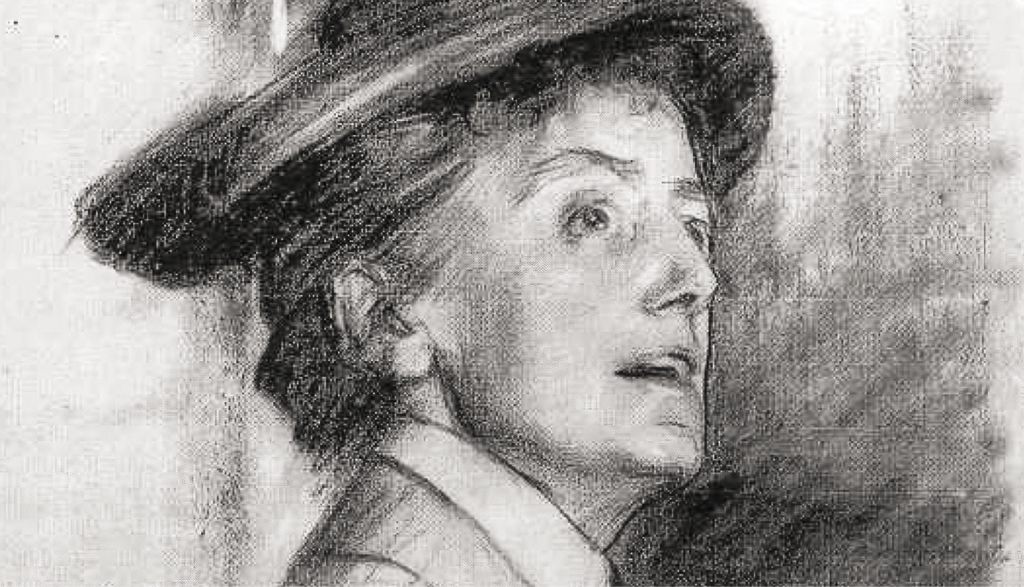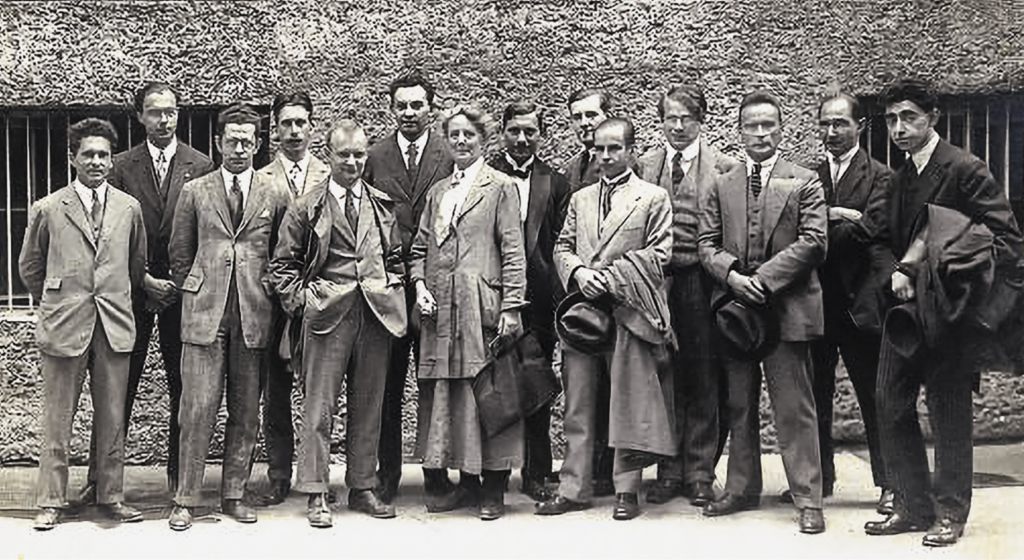Ethel Smyth was born in 1858 and spent her childhood in the rural suburbs of London. She was considered a badly behaved child and showed interest above all in climbing, hunting, and rowing—all unsuitable activities for a young lady of her class. But she also, in keeping with the bourgeois ideal, received private music lessons. This fuelled the development of a great passion that moved her to make the highly unusual decision to become a composer.

In 1877, at the age of 19, she prevailed over massive familial resistance and travelled to Leipzig in order to begin formal studies in composition, to which she soon added private lessons with the famed composer Heinrich von Herzogenberg (1843–1900). Her own composing during this period encompassed mainly chamber music. At the salon run by Heinrich’s wife, Elisabeth von Herzogenberg, Smyth was introduced to one of that era’s most important networks of artists and made the acquaintance of such luminaries as Johannes Brahms, Clara Schumann, Edvard Grieg, and Pyotr Ilyich Tchaikovsky. Elisabeth von Herzogenberg and Ethel Smyth also entered into a romantic relationship. 1890 saw Smyth’s initial works for orchestra performed in the famed concert series organised by August Manns. Her royal network, which included Queen Victoria, supported her in the 1893 realisation of her Mass in D at the Royal Albert Hall and the performances of her first operas. And in 1903, her music drama Der Wald—which had premièred at the Berlin Court Opera—became the first opera by a woman composer to be performed at the Metropolitan Opera in New York.
Smyth was a devoted participant in the women’s suffrage movement, even spending several weeks in London’s Holloway Prison following demonstrations. 1914 then saw planned, already-contracted opera performances under Bruno Walter in Munich and Frankfurt fall through due to the outbreak of World War I. During the war years, Smyth worked as a radiologist’s assistant in France and began writing her memoires. In addition to numerous musical works, she also published ten books. What’s more, she was awarded the honorary title D.B.E. (Dame Commander, Oder of the British Empire) in 1922, in which year she was also present as the only female composer at the founding of the International Society for Contemporary Music in Salzburg. The hearing difficulties that Smyth had been experiencing grew worse toward the end of her life, ultimately leading to complete deafness in 1939. She passed away in Woking, England in 1944.

This past summer semester, students of the Joseph Haydn Department of Chamber Music and Contemporary Music and the Max Reinhardt Seminar devoted an entire evening to the life and works of this exceptional English woman composer with The Life and Times of Ethel Smyth. The idea and concept for The Life and Times of Ethel Smyth came from Stefan Mendl, who gives us some impressions from the planning and creative process behind this multimedia presentation in the following interview. Scholarly consulting was provided by Angelika Silberbauer, and the participating actors were rehearsed by Annett Matzke.
I feel I must fight for my music, because I want women to turn their minds to big and difficult jobs; not just to go on hugging the shore, afraid to put out to sea.
Ethel Smyth
The Life and Times of Ethel Smyth honoured a female composer whose music is rarely heard. How does one become aware of Ethel Smyth in the first place?
Stefan Mendl (SM): “Ethel Smyth—never heard of her. Is that someone I need to know?” A bit over a year ago, it was that or something similar that would come back whenever I’d talk about how into this project I was. And to my disgrace, I must admit that I’d been just as nonplussed a few months before that when my then-student Tiziana Columbro told me she wanted to play a violin sonata by a certain Ethel Smyth for her diploma exam and also write a paper on it. Soon thereafter, I heard it for the first time myself and was both excited and impressed by the music.
How, following that impulse from your student, did you arrive at an evening that exclusively featured music by Ethel Smyth?
SM: Having been instantly taken with this music, I naturally wanted to know more about its composer. And I soon realised that Ethel Smyth was and still is not only an important composer but also a fascinating historical and political personality as well as an outstanding author.
What’s to be had from reading Smyth’s books?
SM: In her comprehensive autobiography, Smyth shows herself to be not just a witty and verbally talented author but also an important witness to an era that stretched from Victorian England to the Second World War. But how, for instance, was it possible for a girl born to an arch-conservative family of British officers to develop such a passion and gift for music? And what were her encounters with famous artists like? In her writings, she brilliantly answers all of these questions and more.
The Life and Times of Ethel Smyth showed Smyths life and works as they stood around 1900. How might one imagine these?
SM: I felt it important to also give the audience a sense of the era during which Smyth lived and worked. But from the beginning, the main thing for me was to engage with Smyth’s music. Being fascinated by her operas and her orchestral and choral works, it was only natural that I’d also experience her chamber music as hugely varied and inspired. It was therefore an immense pleasure to team up with students in using these works to gain and then convey an impression of this important composer’s artistic and stylistic development. On this evening, the students presented excerpts from Smyth’s oeuvre ranging from the Violin Sonata (1887) to the String Quartet (1902/12) and on to her Three Songs (1913) and the Variations for Flute, Oboe, and Piano (1925/27). In order to also hear from Smyth as an author, quotations from her autobiography and from her innumerable letters were read in the original English by students of the Max Reinhardt Seminar. And we rounded out the overall impression with biographical sketches, 1930s interviews with the composer, and audio clips. It’s high time we rediscovered a great woman and artist who left behind enduring works as a composer and showed us, as a personality, just what all can be achieved despite great social and personal obstacles.
The Life and Time of Ethel Smyth can be accessed at the mdwMediathek.

